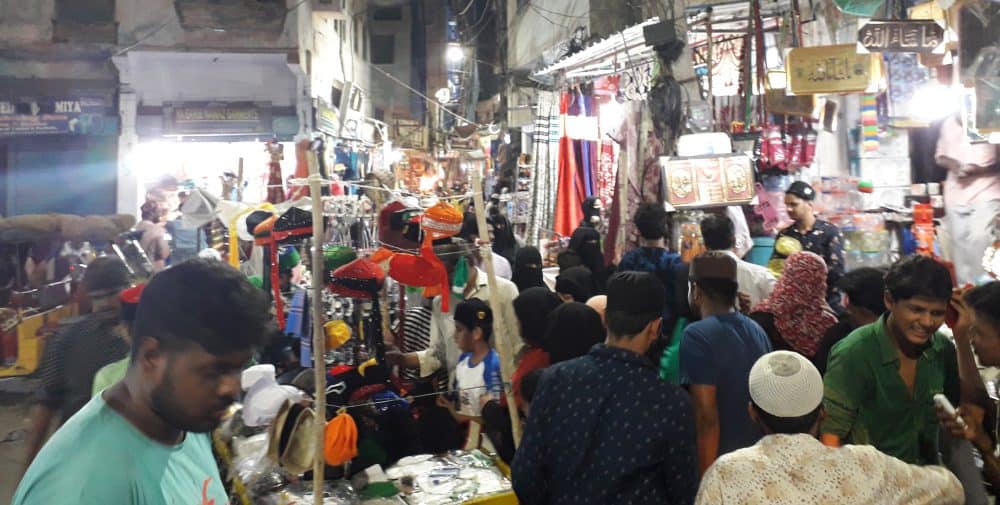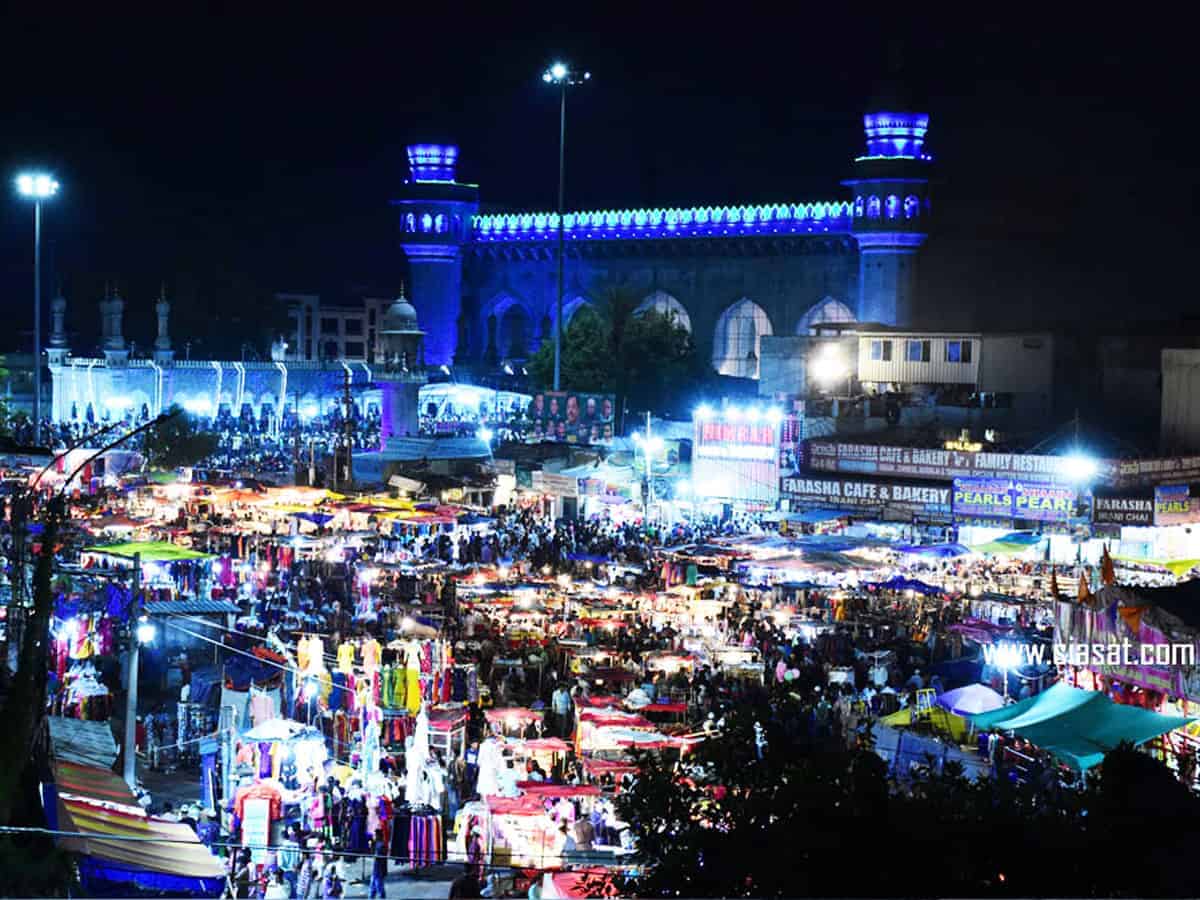Hyderabad: The holy month of Ramadan every year is a period of not just spiritual activity but also of unprecedented business and trade in this historic city famous for its rich Islamic heritage.
The city hardly sleeps during the fasting month as centuries-old markets do round-the-clock business while hundreds of hotels and food joints serve piping hot Haleem, a special delicacy of the month, and other lip-smacking dishes.

However, this year the city will miss the buzz associated with Ramadan as the month will be overshadowed by Coronavirus infused lockdown.
There will be no congregations in mosques, no markets teeming with shoppers and no feastings either.
Perhaps for the first time in living memory, the city of minarets and pearls will miss all the hustle-bustle of the fast month it is known for, not just in the country but around the world.
Though the extended lockdown is to end on May 3, Hyderabad and the rest of Telangana, as well as other states are not likely to witness a normal Ramadan.

April will see five to six days of Ramadan and even if the lockdown is lifted from May 4, the restrictions on congregational prayers in mosques and movement in public places are not likely to be removed.
Ever since lockdown came into effect on March 22, only three to four persons are being allowed to offer daily five-time namaaz in mosques. The restriction is continuing for all prayers including Friday.
‘Roza’ or fasting during the entire month of Ramadan is one of the five basic pillars of Islam. The fasting is obligatory for all adult Muslims except those who are ill and travelling. During the fast, observed every day from dawn to the sunset, Muslims refrain from consuming any food, drinking water, smoking, and engaging in sexual relations.
For adult Muslims who can’t fast because of ill-health, it is obligatory to feed a poor person every day.
Ramadan is considered the spring of good deeds, devotion, compassion, generosity, forgiveness and repentance.
In addition to five regular congregational prayers in mosques, the faithful also offers special prayers ‘Taraveeh’ during night time. In every mosque, a Hafiz-e-Quran or one who memorizes the Holy Quran recited at least one part in ‘Taraweeh’. These prayers usually continue until midnight.

This year Islamic scholars have advised Muslims to offer ‘Taraweeh’ in their homes. The families can together offer the prayers in their respective houses with the man who memorizes the majority of ‘surahs’ or chapters leading the namaaz. They say it can also be offered individually.
While congregational prayers in mosques will be missed, they say Muslims can still perform all obligatory prayers at home and spend most of the time in recitation of holy Quran, ‘Zikr’ or remembering Almighty Allah to seek His forgiveness and make special supplication for an early end to the pandemic.
During normalRamadan, the volume of business, which is mostly in the unorganised sector, is beyond anybody’s guess. According to some estimates, the business covering eatables, garments and footwear alone exceeds Rs 2,000 crore.

Such is the economic spin-off of Ramadan that thousands of people get additional income by setting up makeshift shops on footpaths to sell various items. The authorities also show leniency during the period.
The vendors across the city sell varieties of dates, which are preferred breaking fast, fruits, snacks, aatar or perfumes, skull caps, garments and during the last few days items like ‘sweyian’ or vermicelli and dry fruits.

This year they all will be out of business. “My small shop of readymade garments near Charminar is shut since last month and there is no hope that we can do any business this Ramadan,” said Syed Mubashir, a small trader.
One of the significant features of Ramadan is that it creates empathy towards have-nots and encourages charity. Islamic scholars say the person who fasts develops empathy towards hungry.
Dozens of organizations distribute free ration, clothes and even money among poor families so that they also join the month-long festivities. During the month, Muslims who possess wealth in excess of the minimum exemption limit, pay ‘zakat’ or 2.5 per cent annual tax to the poor and the needy. All the Muslims irrespective of their wealth and age have to pay ‘fitra’ (2.5 kg wheat or an equivalent amount) before ‘Eid-ul-Fitr’ which marks the end of Ramadan.
With the ongoing lockdown crippling the livelihood of thousands of daily wagers and small businessmen and traders and there is hardly any money for Ramadan, Islamic scholars have called for paying ‘zakat’ to such families.

“Despite the hardships, many well-to-do Muslims have started making ration kits for Ramadan. They distribute it among the poor every Ramadan but this time, not just poor but many lower middle-class families need this help,” said Ishtiaq Ahmed, an active aid worker.

